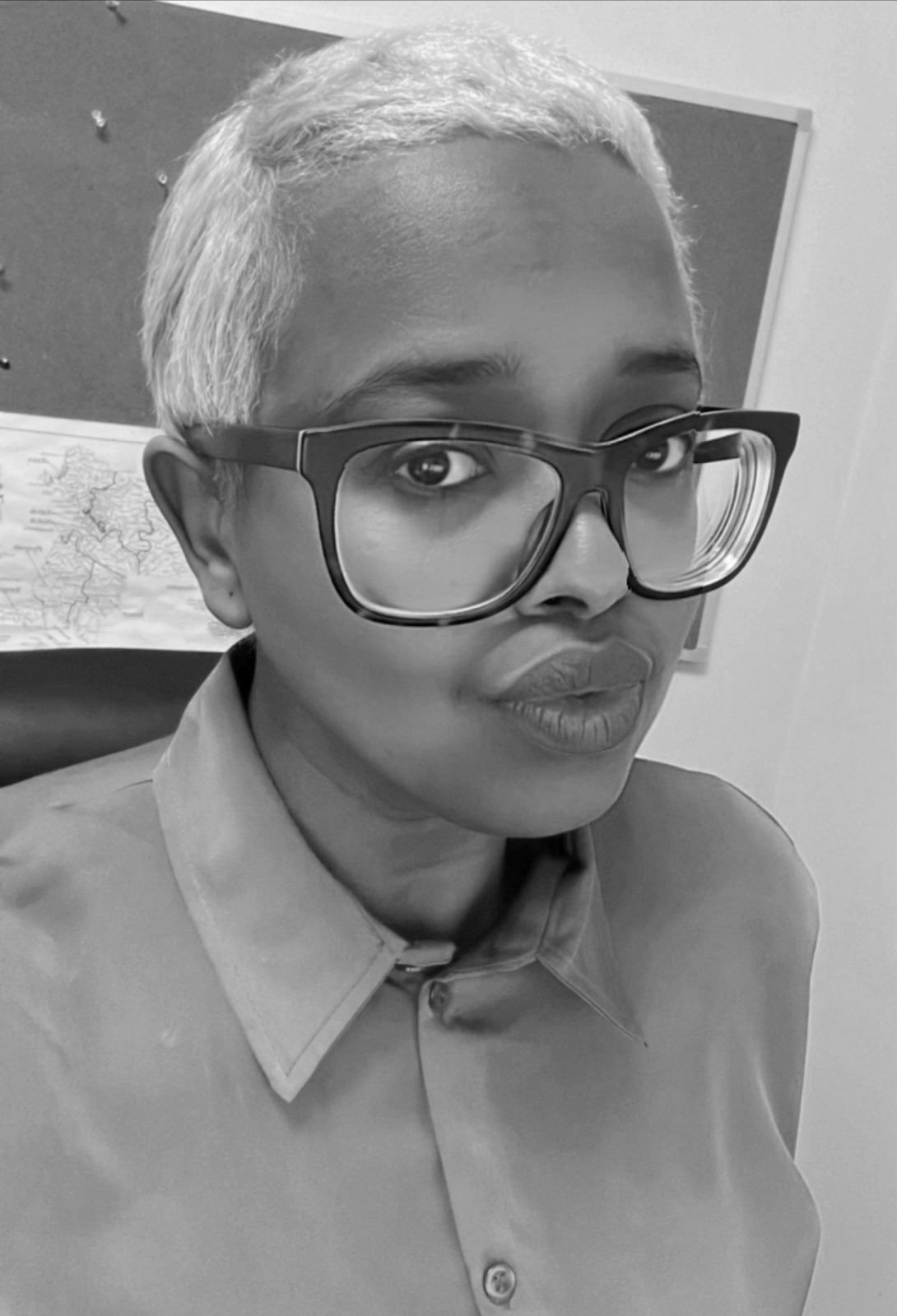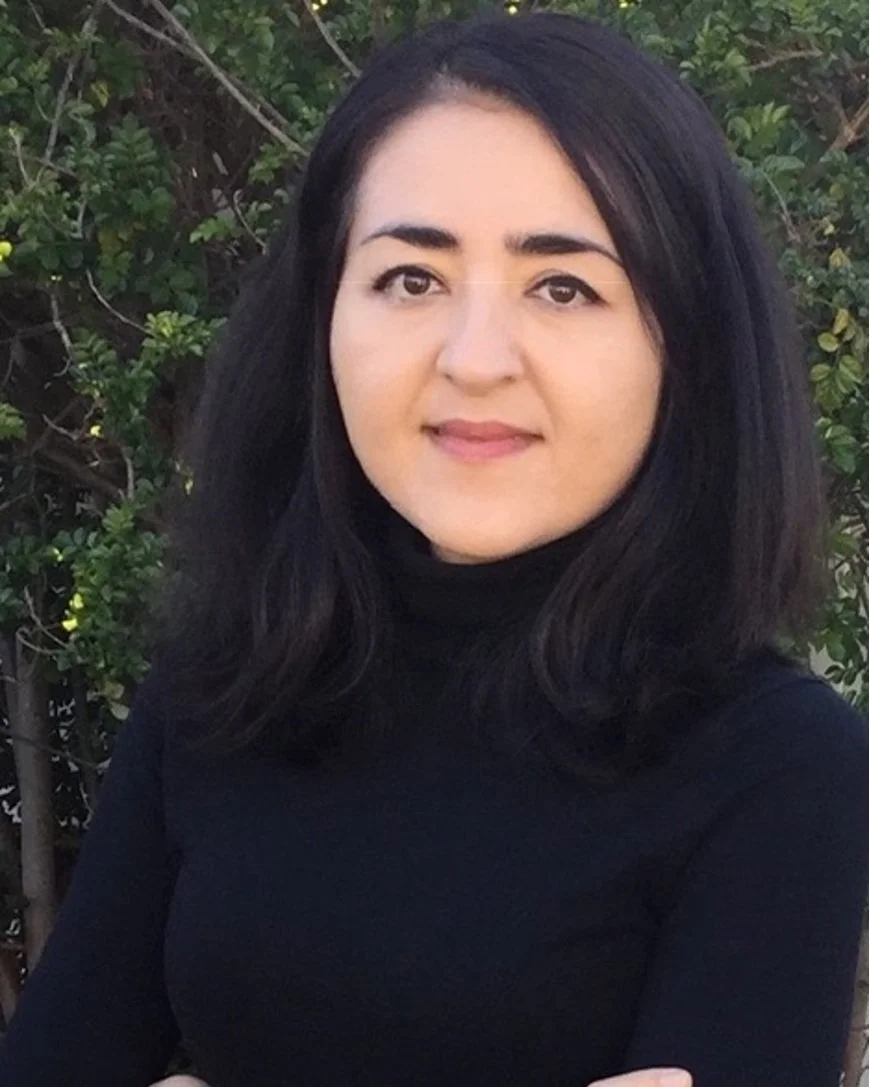
About
Who We Are
Muslim Counterpublics Lab (MCL) is a grassroots, community-building organization that uses the tools of research, writing, and organizing as well as direct, victim-centered support and advocacy campaign programming to challenge systems of oppression rooted in Islamophobia. These structures include state and state-sanctioned violence ranging from widespread surveillance and persecution of Muslim communities by law enforcement and immigration authorities to indefinite detention and torture. We believe that in order to be effective in this work, we must confront the pervasive dehumanization of Muslims head-on and offer support to historically marginalized and oppressed communities.
-
The mission of Muslim Counterpublics Lab (MCL) is to disrupt and subvert dehumanizing narratives that are designed and deployed to justify state violence against Muslims.
-
Muslim Counterpublics Lab’s vision is to create a world where Muslims and all marginalized communities have political, social, and economic power to build societies rooted in liberation instead of oppression.
-
Our approach is built on two key principles: the recognition of the power of narrative and the capacity of counternarrative to disrupt and the deliberate centering of victims such that their voices are consistently uplifted and their needs meaningfully addressed. Through the development and deployment of media strategies, political education programming, organizing, and providing direct support to War on Terror survivors, MCL puts the necessary tools for demanding an authentic reckoning with Islamophobia and the legacy of direct and indirect harm that underpins these policy and enforcement structures directly into the hands of those most impacted.
What is a counterpublic?
Adapted from Michael Warner and Nancy Fraser, the notion of a “counterpublic” refers to the creation of parallel discursive arenas that arise in response to the exclusionary nature of the official, dominant public sphere. Counterpublics are necessary for Muslims and other oppressed groups, as traditional public spheres of discourse exclude our communities, stories, and calls for justice.
Our Team
Dr. Maha Hilal, Founder & Executive Director
Dr. Maha Hilal is the founding Executive Director of Muslim Counterpublics Lab. She is an author, researcher, and organizer dedicated to dismantling the War on Terror. Her first book, Innocent Until Proven Muslim: Islamophobia, the War on Terror, and the Muslim Experience Since 9/11, was released in January 2022 to widespread acclaim. Her writings have appeared in Vox, Al Jazeera, Middle East Eye, Newsweek, Business Insider, and The Daily Beast, and The Nation among others.
Prior to founding MCL, Dr. Hilal was the inaugural Michael Ratner Fellow at the Institute for Policy Studies where she produced thought pieces on the targeting of Muslim in the War on Terror.
She has worked at a number of human rights/social justice organizations including the Coalition for Civil Freedoms, Government Accountability Project, Torture Abolition and Survivors Support Coalition, and Center for Victims of Torture.
Dr. Hilal earned her doctorate in May 2014 from the Department of Justice, Law and Society at American University in Washington, D.C. She received her Master's Degree in Counseling and her Bachelor's Degree in Sociology from the University of Wisconsin-Madison. In her spare time, Dr. Hilal enjoys spending time with her family and practicing Arabic calligraphy.
Sanaa Ansari Khan, Digital Spaces Project Director
Sanaa is the Director of the Digital Spaces Project at Muslim Counterpublics Lab where she works to ensure digital spaces are equally accessible to Muslims sharing their narratives. She is a Washington, D.C.-based attorney who has worked on Muslim civil rights and digital rights issues at several nonprofit advocacy organizations over the last two decades, including CAIR, Muslim Advocates, and Lawyers' Committee for Civil Rights Under Law.
Fariha Huriya, Program Assistant
Fariha is the Program Assistant at MCL and a seasoned muslim organizer living in ward 7 of DC. She founded many mutual aid projects, and has been a core organizer with Peace House DC, DCIWOC and east of the river mutual aid. She has experience with organizing with multiple Prison organizers and beliefs in an inside-out approach.
Fellows
Roshni Ahmed, Associate Fellow
Roshni is an Associate Fellow at MCL. She grew up in an Indian Muslim immigrant household in New York and has a background in International Studies and Sociology. She is currently based in Austin, Texas. Her experiences include community organizing and advocacy on issues related to immigrant justice, gender based violence and civic engagement. Currently, she is the Campaign Manager for Defund Hate focusing on divestment from immigration enforcement and border militarization. Roshni also enjoys dance, poetry and exploring new food places in her free time.
Ebad Athar: Oral History Fellow
Mohammad Ebad Athar is a PhD Candidate in History at Syracuse University. His research documents South Asian community stories of resistance to the Global War on Terror. He has several years of experience in oral history and has collected the stories of war veterans, immigrant communities, and South Asian/Muslim activists and organizers.
Rawan Maarouf: Outreach and Communication Fellow
Rawan is a proud daughter of Egyptian immigrants, born and raised in New Jersey. As the eldest of four siblings, she carries a strong sense of responsibility and connection to her roots. She earned her undergraduate degree from Stockton University and is currently pursuing a graduate degree in Middle Eastern Studies.
With a passion for storytelling, Rawan specializes in video production and media literacy, using her skills to amplify underrepresented voices and challenge dominant narratives. Beyond her work in media, she is also a singer-songwriter with music available on all major streaming platforms. At the heart of all her work is a commitment to deconstructing stigmas and pushing for more inclusive, nuanced conversations.
Advisory Board
Nawal Rajeh
Nawal is a peace educator and community organizer in the DC/ Baltimore area. She has organized communities around issues ranging from housing to worker’s rights. She is the co-founder of By Peaceful Means (BPM), a grassroots community organization that works to interrupt forms of physical and structural violence in Baltimore City. Rajeh is currently a lecturer at Georgetown University’s Justice and Peace Studies Program and PhD candidate at George Mason University’s Carter School for Peace and Conflict Resolution.
Iman Hassan
Iman is the director of the Stop the School to Prison Pipeline program at Massachusetts Advocates for Children. She has significant experience practicing in fields of law which profoundly affect the lives of Black, Brown, Indigenous and Latinx children living in poverty, including family juvenile justice, special education, and school discipline law.
Iman represents students with disabilities and their parents to advocate for appropriate special education services and placements. She represents and advises parents in all aspects of special education, including at education Team meetings, mediations, administrative hearings before the Bureau of Special Education Appeals (BSEA), and federal court proceedings in matters involving violations of federal and state special education law.
Dr. Mariam Durrani
Dr. Durrani, is a Professorial Lecturer at the School of International Service and a faculty affiliate with the Anti-Racism Research and Policy Center at American University. As a decolonial feminist anthropologist, Dr. Durrani's scholarship seeks to shift how academia, news media, and public discourse reflect on and reckon with the "Muslim" subject and the impact of global wars on higher education in the US and Pakistan. Her work draws on discourse analysis, multi-sited ethnography, and multimodality to study racialization, migration, and education across the US, Pakistan, and the broader South Asian and SWANA regions. As an intentionally public scholar, she writes and produces extensively on both academic and non-academic platforms. Dr. Durrani locates her teaching, scholarship, and advocacy through feminist approaches to dialogue, collaboration, and knowledge production.
Ramah Kudaimi
Ramah Kudaimi works at the Action Center on Race & the Economy as the Campaign Director of the Crescendo Project, which focuses on researching and campaigning against corporate complicity in Islamophobia and anti-Muslim bigotry. She was previously the Deputy Director at the US Campaign for Palestinian Rights, where she led and supported BDS (boycott, divestment, sanctions) campaigns in solidarity with the Palestinian people’s liberation struggle.
Ramah currently serves on the board of Social Movement Technologies Foundation, has served on the board of the Washington Peace Center, and has been a member of the National Committee of the War Resisters League. She also organizes with the Syrian Solidarity Collective and has been an activist with other organizations including the Arab American Action Network.
She holds an M.A. in Conflict Resolution from Georgetown University and a B.S. in Journalism from Northwestern University. She dreams of a world without war, militarism, and borders, and believes we can create that world through a commitment to collective liberation and transnational solidarity with all those fighting oppressive regimes and systems.
Najwa Mayer
Najwa Mayer is an interdisciplinary scholar of race, gender, Islam, and US empire, working at the intersections of politics, aesthetics, and critical theory. Her research and teaching fields span ethnic studies, critical Muslim studies, gender and sexuality studies, and critical refugee studies.
She is currently an Assistant Professor of Women’s and Gender Studies at Loyola Marymount University and a Visiting Postdoctoral Scholar in the Society of Fellows at Boston University.
She holds a PhD in American Studies from Yale University. Migrating to the US as a child refugee within a working-class family, she has been involved in community organizing on issues of imperialism, borders, and policing. She has also spent years working in public education through youth and community engaged nonprofits and museums.












